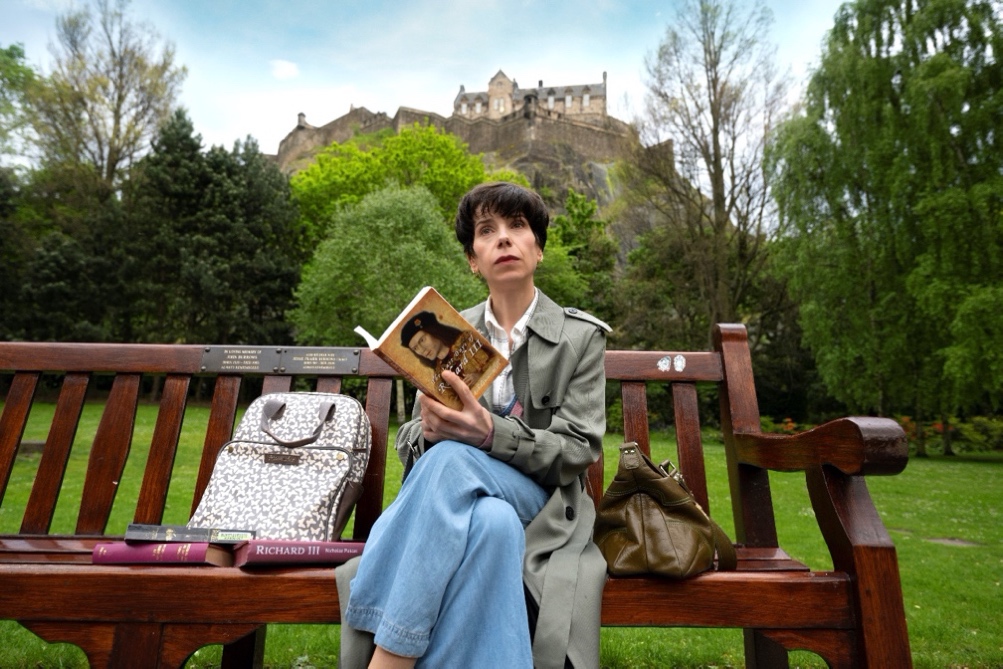Back in 2017, all we knew about an upcoming film on the search for Richard III’s lost grave was a scrap of information that Steve Coogan gave us, it was to be ‘about the amateur-versus-the Establishment, and intuition-versus-academia’. Although it had been kept under wraps, Philippa Langley, the driving force behind the Looking for Richard project, had first met with Steve Coogan back in 2014. I was, in fact, a little apprehensive when it was first announced. Even though I was a big fan of Philomena, which was written by Steve Coogan and Jeff Pope, I wasn’t at all sure what direction they would take with this film. They hadn’t announced that Philippa herself was consulting on the film. But when they finally announced that Sally Hawkins was playing Philippa, any apprehension I had in that regard vanished. It was obvious that the film would focus very closely on Philippa’s part of the story, Coogan himself said ‘we are shooting a film about the woman who found the body of Richard III in a car park in Leicester. I’ll be playing her husband’. With such a talented actress leading the cast, I knew the story would have the right amount of gravitas to balance out the comedy.
I was expecting there would be some complaints, at least, from Ricardians, on people being left out of the film. It’s inevitable that the film would focus on Philippa herself, and not on every person who was involved in the project. But I wasn’t expecting to hear anything from the team at Leicester University who undertook the archeological, and later, scientific work on Richard III’s remains, remains which they had access to for almost three years before they were reinterred in Leicester Cathedral in 2015. But this morning, The Guardian published an article, rather excessively claiming a ‘Royal Row’ was taking place because geneticist Turi King, former Leicester University registrar Richard Taylor, and archeologist Mathew Morris have complained that they weren’t consulted about the film, or that their part has been diminished.
It seems a rather huge stretch, considering the staggering amount of primary source material available, including two official books on the dig, multiple documentaries, published academic papers, and countless, and I mean countless, newspaper articles luridly splashing Richard III’s remains across the internet, that people on the scientific team would be expected to be consulted by filmmakers on ‘their side’ of Philippa’s story. Richard Taylor may have a genuine complaint if he was made to look the villain of the film, but this is based only on a trailer thus far. I also find his assertion that David Baldwin needed to be mentioned in the film surprising, because many at Leicester University still thought Richard III’s remains had been thrown in the River Soar at the time they were approached about the dig. They only claimed David’s paper was ‘key’ after the dig was successful, and while I only spoke to David on a few occasions, he was a lovely, down-to-earth man, who never tried to claim credit, or that he discovered the actual site of Richards grave, writing that it was difficult to be precise about the location. The greatest thing David Baldwin left Richard III’s cause was his immensely readable and sympathetic biography of Richard, which I recommend to all newly interested in Richard III.
The Guardian writes that ‘they are concerned that Langley, motivated by the belief that she was cut out by the team, has told the film-makers an incomplete version of the story’, despite the abundance of official material the filmmakers could have consulted about Leicester University’s part. What is presumptuous about the claims of not being consulted, is the assumption that a film audience is going to be interested in the scientific work carried out on Richard’s remains afterwards, which has been very thoroughly documented in the media already. I have said this before, years ago, and I will say it again, while archeology obviously played a huge part in the project, the science played almost no part in discovering Richard. Perhaps the identification process was deemed important by some, but it’s not science that found Richard III’s grave. It is historical research, and decades of it, that found the location of his remains. It was the tenacity of Philippa Langley and years of (probably tedious and frustrating) project management that unearthed Richard III’s remains. Had the grave been discovered decades ago, it would have been identified as Richard III on the basis of historical research, primary sources, the numerous papers written about the location, and the few references, mostly Tudor, that Richard had uneven shoulders. The actual science of identification of ancient remains is imprecise. The true scientific discovery made was the type of scoliosis Richard had, and Leicester University have received plenty of accolades for their work.
The Lost King is a film that will tell Philippa Langley’s story. It is not going to be told in a perfectly accurate manner, even with Philippa herself consulting. There will be fictional elements. It is not going to be universally pleasing. But it is the part of the story of finding Richard III’s lost grave that belongs to Philippa Langley, and to Philippa Langley only. And then, by extension, it belongs to the other people involved in Philippa’s search, such as the late John Ashdown-Hill. And then, in part, the film belongs to Ricardians, some who lived through it, some who were inspired by it, and it will belong to the new Ricardians that the film will make. And it’s a story that now belongs to history.

Watch the trailer for The Lost King below

